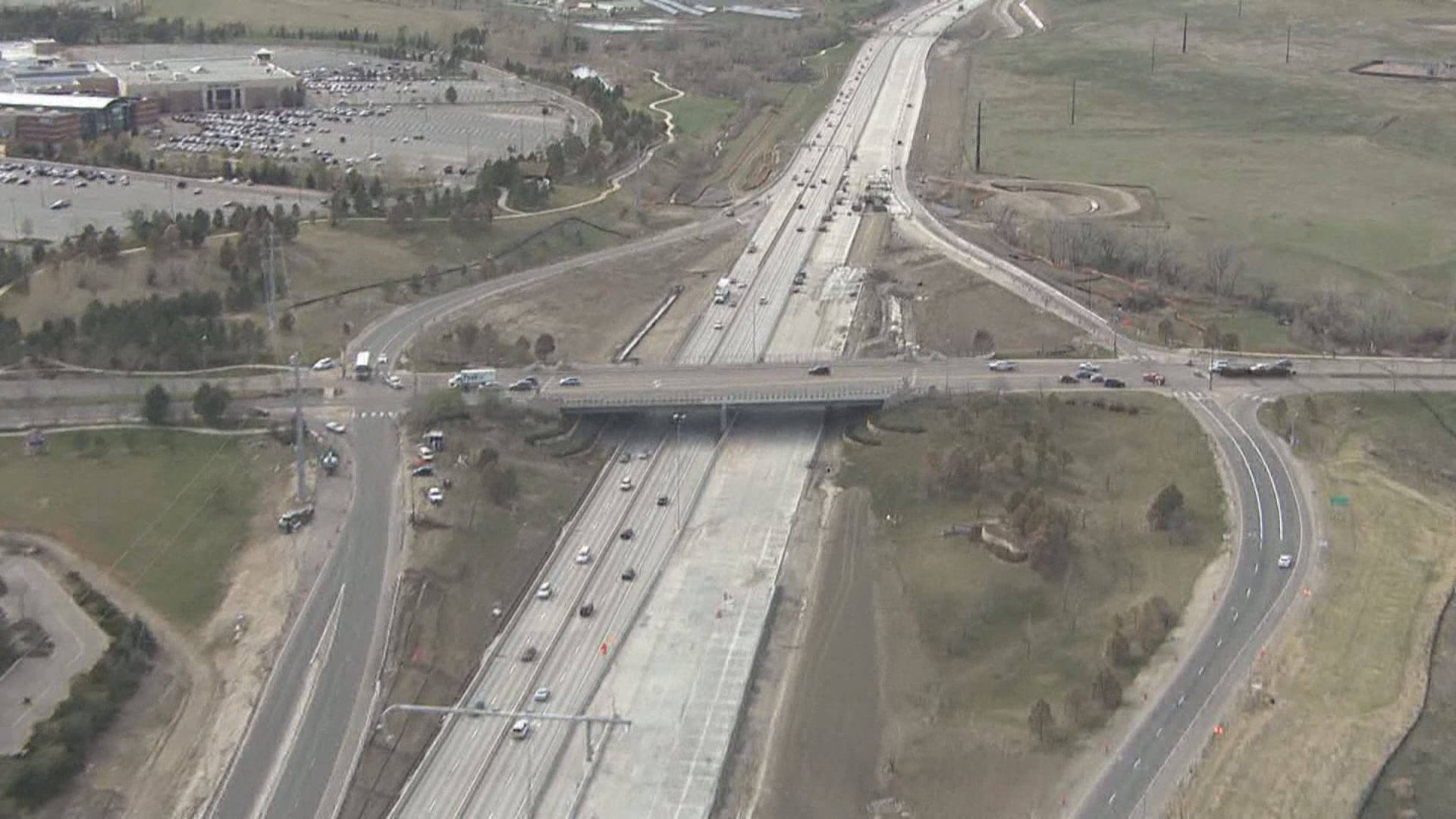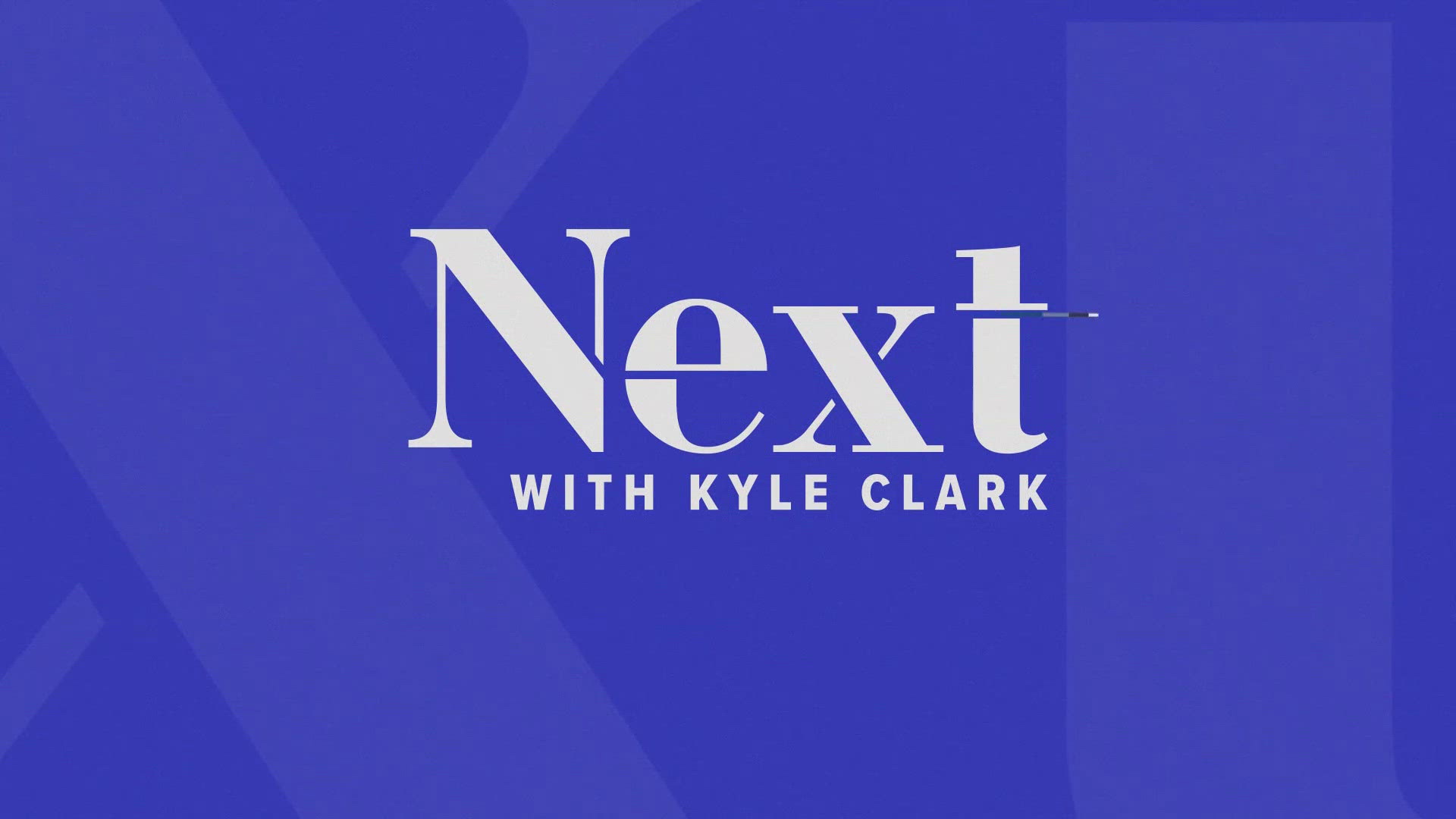Breaking road news about breaking roads. A bipartisan bill from the leaders in the state legislature have introduced a bill to fund transportation projects to build new roads.
To do so, you'll be asked to approve a sales tax increase, while reducing those pesky vehicle registration fees.
House Bill 17-1242 was introduced late Wednesday and requires a vote of the people on the November 2017 ballot.
The bill would increase the state sales tax from 2.9 percent to 3.52 percent from January 2018 until December 2037.
At the same time, vehicle registration fees would be reduced:
CURRENT FEES
• $16: motorcycle, vehicles 2,000 pounds or less
• $23: 2,000-4,999-pound vehicle (most sedans and SUVs)
• $28: 5,000-9,999-pound vehicle (some SUVs and Trucks)
PROPOSED FEES
• $6: motorcycle, vehicles 2,000 pounds or less
• $9: 2,000-4,999-pound vehicle (most sedans and SUVs)
• $11: 5,000-9,999-pound vehicle (some SUVs and Trucks)
So, those numbers mean that...
- Sedans and SUVs would save $14 on registration fees and pickups would save $17
- For every $10 you spend, you pay 6 cents more in tax, or for every $100, you'd pay 60 cents more.
- So, for every $3,000 you spend on taxable stuff, you would have paid $18 more in taxes for those purchases than you would now.
- Think about it for yourself. How often are you spending $3,000 on taxable stuff (clothes, groceries, etc.) a year?
- So, for every $3,000 you spend on taxable stuff, you would have paid $18 more in taxes for those purchases than you would now.
VIDEO: Breaking down the money for proposed transportation bill
The legislature estimates that the increase in the state sales tax, minus the reduced vehicle registration fees, would bring in $680 million annually, allowing the Colorado Department of Transportation to borrow $3.5 billion for new projects.
Based on the legislation as written, $300 million annually will go to CDOT. The remaining revenue would be split with 70 percent going to city and counties in "equal total amounts" and 30 percent to a newly created "multimodal transportation options fund."
That fund would be for paths, sidewalks and roadways intended for non-motorized equipment, including the improvement of shoulders, crosswalks and intersections.
The projects that would receive funding would be in listed in the Blue Book that voters get prior to the November 2017 election.
“Introduction of this transportation bill doesn’t mean we’ve arrived, just that we’ve hit another important mile marker on the long and winding road to a long-term transportation fix for Colorado," said Senate President Kevin Grantham, R-Canon City. "This bill probably isn’t what the final product will look like, because what’s being introduced is a work in progress and there’s still a lot of debate, compromise and hard work ahead before we’ll have a proposal good enough to pass muster with voters. But I’m optimistic that we’ll get there in the end."
"Every county and city in Colorado will share in the benefits from this transportation package," said House Speaker Crisanta Duran, D-Denver. "And we will insist on transparency and accountability, so that voters will know where their dollars are going and how they will be used. This package, if approved by the legislature and the voters, would be a major step forward for this state and firmly position us for growth and prosperity for the next 20 years."
$50 Million of "any remaining revenue" would be used as a rainy-day fund for infrastructure emergencies.
Also, a 15-member citizen oversight committee would be created to monitor the projects and the spending.
Actual text of what would be on November Ballot, as the bill is currently written:
"SHALL STATE TAXES BE INCREASED BY SEVEN HUNDRED TWO MILLION TWO HUNDRED THOUSAND DOLLARS ANNUALLY BY A TEMPORARY INCREASE IN THE RATE OF THE STATE SALES AND USE TAXES OF 0.62% FOR THE TWENTY-YEAR PERIOD BEGINNING JANUARY 1, 2018, AND ENDING DECEMBER 31, 2037, SHALL THE REVENUE GENERATED BY THE STATE SALES AND USE TAX RATE INCREASES BE USED SOLELY FOR SPECIFIC TRANSPORTATION PROJECTS AND TRANSPORTATION FUNDING, INCLUDING PAYMENT OF TRANSPORTATION REVENUE ANTICIPATION NOTE PAYMENTS, AND EXCLUDED FROM ALL STATE AND LOCAL GOVERNMENT FISCAL YEAR SPENDING LIMITS, SHALL THE INCREASE IN STATE TAXES BE PARTLY OFFSET BY A STATE REVENUE REDUCTION RESULTING FROM A TEMPORARY DECREASE IN STATE ROAD SAFETY SURCHARGES FOR THE TWENTY-YEAR PERIOD BEGINNING JANUARY 1, 2018, AND ENDING DECEMBER 31, 2037, SHALL STATE OF COLORADO DEBT BE INCREASED UP TO $3,500,000,000, WITH A MAXIMUM REPAYMENT COST OF $5,000,000,000, THROUGH THE ISSUANCE OF ADDITIONAL TRANSPORTATION REVENUE ANTICIPATION NOTES FOR THE PURPOSE OF FUNDING STATE TRANSPORTATION PROJECTS, AND SHALL NOTE PROCEEDS AND INVESTMENT EARNINGS ON NOTE PROCEEDS BE EXCLUDED FROM STATE FISCAL YEAR SPENDING LIMITS?"


